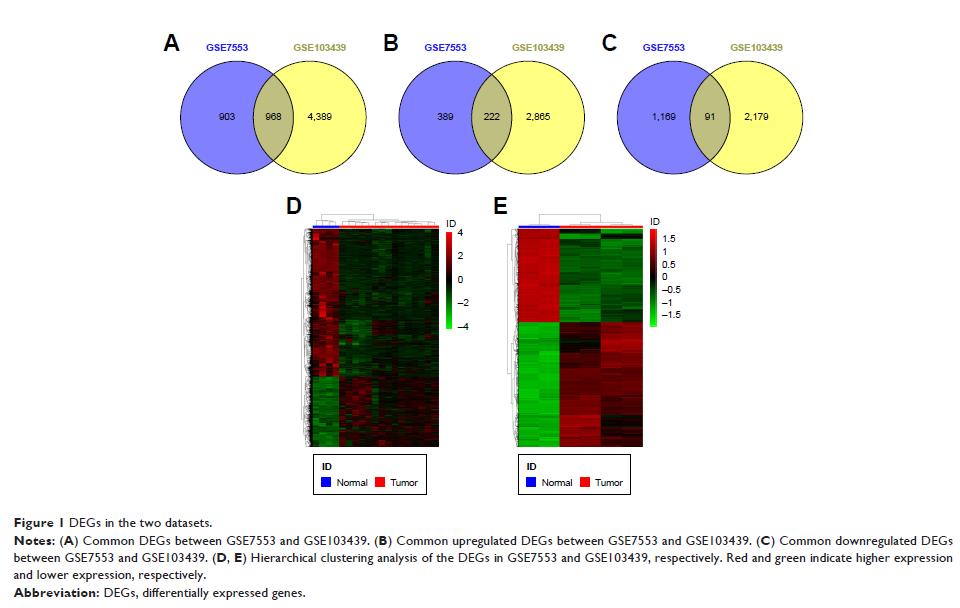108384
论文已发表
注册即可获取德孚的最新动态
IF 收录期刊
- 3.4 Breast Cancer (Dove Med Press)
- 3.2 Clin Epidemiol
- 2.6 Cancer Manag Res
- 2.9 Infect Drug Resist
- 3.7 Clin Interv Aging
- 5.1 Drug Des Dev Ther
- 3.1 Int J Chronic Obstr
- 6.6 Int J Nanomed
- 2.6 Int J Women's Health
- 2.9 Neuropsych Dis Treat
- 2.8 OncoTargets Ther
- 2.0 Patient Prefer Adher
- 2.2 Ther Clin Risk Manag
- 2.5 J Pain Res
- 3.0 Diabet Metab Synd Ob
- 3.2 Psychol Res Behav Ma
- 3.4 Nat Sci Sleep
- 1.8 Pharmgenomics Pers Med
- 2.0 Risk Manag Healthc Policy
- 4.1 J Inflamm Res
- 2.0 Int J Gen Med
- 3.4 J Hepatocell Carcinoma
- 3.0 J Asthma Allergy
- 2.2 Clin Cosmet Investig Dermatol
- 2.4 J Multidiscip Healthc

鉴定基底细胞癌中的严重致癌基因
Authors Dai J, Lin K, Huang Y, Lu Y, Chen W, Zhang X, He B, Pan Y, Wang S, Fan W
Received 25 May 2018
Accepted for publication 20 July 2018
Published 15 October 2018 Volume 2018:11 Pages 6957—6967
DOI https://doi.org/10.2147/OTT.S170504
Checked for plagiarism Yes
Review by Single-blind
Peer reviewers approved by Dr Justinn Cochran
Peer reviewer comments 3
Editor who approved publication: Dr Takuya Aoki
Background: Basal cell carcinoma (BCC) is a frequent malignant tumor of skin cancers
with high morbidity. The objective of this study was to identify critical genes
and pathways related to the carcinogenesis of BCC and gain more insights into
the underlying molecular mechanisms of BCC.
Materials and
methods: The gene expression profiles
of GSE7553 and GSE103439 were downloaded from the Gene Expression Omnibus
database with 19 tumors and 6 normal skin tissues. Differentially expressed
genes (DEGs) were screened between BCC samples and normal tissues, followed by
gene ontology and Kyoto Encyclopedia of Genes and Genomes pathway enrichment
analysis. Subsequently, protein–protein interaction (PPI) network was constructed
for these DEGs, and module analysis was performed.
Results: A total of 313 DEGs were obtained. Among them, 222 genes were
upregulated and 91 genes were downregulated. Enrichment analysis indicated that
the upregulated genes were significantly enriched in cell cycle and mitosis,
while the downregulated genes were mainly associated with unsaturated fatty
acid metabolic process and cell differentiation. In addition, TOP2A, CDK1, and CCNB1 were identified as the
top three hub genes ranked by degrees in the PPI network. Meanwhile, three
subnetworks were derived, which indicated that these DEGs were significantly
enriched in pathways, including “cell cycle”, “extracellular matrix–receptor
interaction”, “basal cell carcinoma”, and “hedgehog signaling pathway”.
Conclusions: The novel critical DEGs and pathways identified in this study may
serve pivotal roles in the carcinogenesis of BCC and indicate more molecular
targets for the treatment of BCC.
Keywords: basal cell carcinoma, differentially expressed genes, enrichment
analysis, bioinformatics analysis
